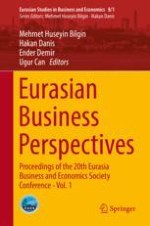2018 | OriginalPaper | Buchkapitel
Transatlantic Trade and Investment Partnership (TTIP) Essay Writing Competition: Case Study for Exploring Writing Skills Issues in English for Specific Purposes (ESP)
verfasst von : Ankica Knezović
Erschienen in: Eurasian Business Perspectives
Aktivieren Sie unsere intelligente Suche, um passende Fachinhalte oder Patente zu finden.
Wählen Sie Textabschnitte aus um mit Künstlicher Intelligenz passenden Patente zu finden. powered by
Markieren Sie Textabschnitte, um KI-gestützt weitere passende Inhalte zu finden. powered by
